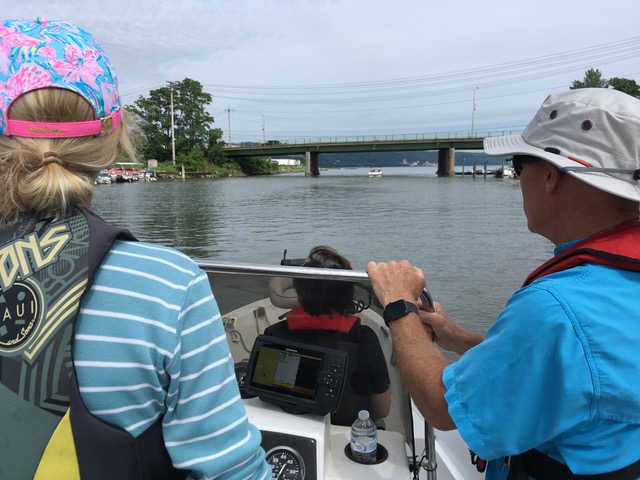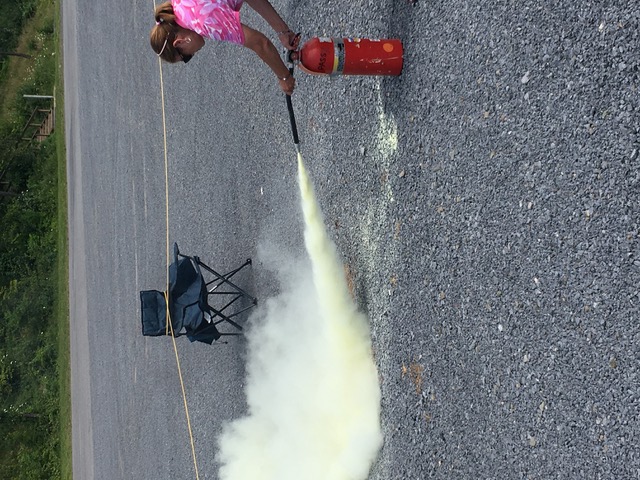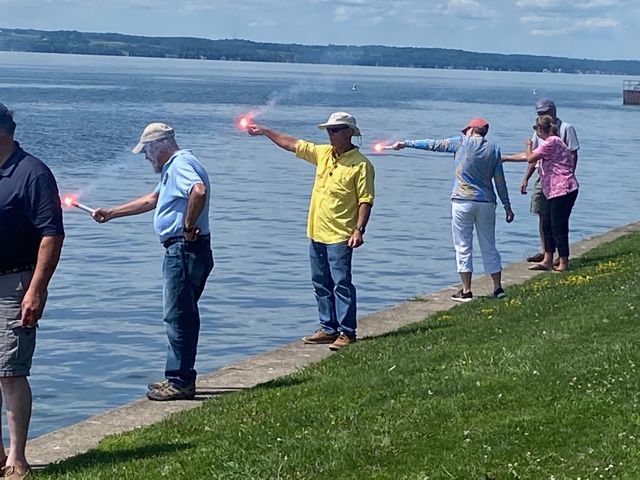Public
Becoming a member is not difficult, but there are a few requirements.
What are the requirements?
One of the core beliefs of USPS membership is that an educated boater is a safe boater. It should then come as no surprise that there is an educational requirement. Typically, this has been satisfied by completion of one of the many public boating safety courses. However, seeing that education can be obtained from various sources, a number of additional courses and life-experiences are recognized.
More questions? Or are you ready to take the next step and sign up? In either case, contact Seneca Squadron’s Membership Chairman so that we can welcome you aboard as our guest, and hopefully as a new member!
 The Finger Lakes Chapter has a comprehensive education program with a wide variety of formal and informal courses from which to choose. These courses can be divided as follows:
The Finger Lakes Chapter has a comprehensive education program with a wide variety of formal and informal courses from which to choose. These courses can be divided as follows:
- America's Boating Course: Entry-level boater safety course to get your state boater safety card.
- Advanced Grades: Courses that deal with general boat handling and navigational skills.
- Electives: Formal courses that deal with a wide variety of boating subjects.
- Seminars: Short (2-4 hour) sessions that focus on a single topic.
- Boat Operator Certification (BOC): Programs designed to integrate classroom and hands-on elements.
- Home-Grown: Informal, hands-on sessions on specialized topics not covered by the formal USPS educational program.
America's Boating Course
Get your state boating card and learn the skills you need to be safe while boating. Take the finest National Association of State Boating Law Administrators (NASBLA) recognized boating safety course available. By enrolling in the America\'s Boating course you will learn navigation rules, water sports safety and other valuable boater safety skills.
Navigation Courses
The courses that compose the core of the ABC educational program are known as the Advanced Grades courses. Completion of these courses is recognized with the award of a "grade" that can be thought of as being similar to the various degrees one can get from traditional educational facilities.
The courses offered in the Advanced Grades sequence are:
- Boat Handling: General boat handling and seamanship skills.
- Marine Navigation / Piloting: Introductory course on navigation with a focus on GPS and traditional dead reckoning skills suitable for use on inland waters and protected waters.
- Advanced Marine Navigation / Advanced Piloting: An extension of the Marine Navigation course covering other electronic navigation tools along with traditional methods suitable for use on longer trips in coastal waters.
- Offshore Navigation / Junior Navigation: An introduction to offshore navigation utilizing both electronic and traditional techniques. This course is the introduction to celestial navigation in which the sun is used to determine one's position in the absence of electronic aids.
- Celestial Navigation / Navigation: A continuation of Offshore Navigation in which traditional celestial navigation skills are extended to include the use of the moon, planets and stars.
Electives
Electives are a collection of formal, classroom-based courses covering popular boating subjects that can, generally, be taken in any order. These include:
- Weather: An intensive introduction to meteorology and weather forecasting as it applies to boaters. This is a college-level course that will make you appreciate just how difficult your local weatherman's job is.
- Sail: A course on the art and science of sail.
- Cruising & Cruise Planning: A fun class to help guide you to plan your next trip, whether it is for an afternoon sail or for a passage across an ocean.
- Engine Maintenance: A basic class on those iron beasts in the bowels of our vessels that make them move.
- Marine Electrical Systems: An in-depth look at the electrical systems that power the lights, instruments and other devices aboard our vessels.
- Marine Communication Systems: An in-depth look at the various communication systems available for the marine environment, from the simple marine VHF radio to elaborate satellite-based systems for global connectivity.
- Marine Navigation Systems: A look at the digital systems primarily used for instrumentation and navigation aboard the contemporary cruising vessel.
- Instructor Development: A class for anyone wishing to become a certified USPS instructor. Aside from covering effective public speaking skills, it also touches on accommodating students with special educational needs.
- Operations Training: A short class recommended for all USPS members who wish to understand how the USPS is organized and how business is conducted by the organization and its various committees.
Seminars
Seminars are short (2-4 hour) sessions intended to present a specific topic to interested students. The number of seminars available increases steadily as new presentation materials are developed.
Current seminar topics available include:
- Advanced Powerboat Handling
- AIS Electronics for Boaters
- Anchoring
- Basic Weather and Forecasting
- Boat Handling Under Power
- Boating on Rivers, Locks and Lakes
- Crew At The Helm (formerly Partner In Command)
- Crossing Borders
- Emergencies on Board
- Fuel and Boating
- How to Use A Chart
- How to Use A GPS Chartplotter
- Hurricane Preparation for Boaters
- Introduction to Navigation
- Knots, Bends and Hitches for Mariners
- Man Overboard
- Mastering the Rules of the Road
- Partner in Command
- Planning Your Cruise
- Practical On The Water Training
- Propane Systems on Your Boat
- Tides and Currents
- Trailering Your Boat
- Using GPS
- Using VHF and VHF/DSC Marine Radio
- Weather for Boaters
Seminar topics coming soon:
- Heavy Weather Sailing
- Using Digital Charts
Home-Grown Informal Instruction
These are informal tutorials that have been developed locally in response to requests by our membership. Some are opportunistic in nature, but all provide practical, hands-on opportunities for our members to learn new boating skills.
- Boat Maintenance & Restoration - A 10-week set of sessions where students helped refurbish a small sailboat which was later auctioned off at a charity fund-raiser. Skills covered included working with fiberglass, painting a hull and deck, installing waterproof ports, sewing and repairing sails, refinishing brightwork.
- Sailboat Repowering - These were several impromptu sessions for interested students to help a squadron member swap out diesel power plants in his 35-foot sailboat. In the process, students were able to learn about and participate in engine removal and replacement, engine bed considerations, motor alignment, typical engine hookups and support systems.
- Marine Refrigeration - A 2-hour session where students obtained some hands-on experience converting an older boat's ice box to a refrigerator. Once the system was installed, the system was evacuated and charged with refrigerant and oil and then monitored for proper cooling. Different types of refrigerants were discussed along with the logistics and compromises of installation.
Boat Operator Certification
 Courses, electives and seminars are grouped into four families and complimented with skill demonstrations (i.e., hands-on tests) to create certification programs that are recognized internationally. Certification levels available to members are the following:
Courses, electives and seminars are grouped into four families and complimented with skill demonstrations (i.e., hands-on tests) to create certification programs that are recognized internationally. Certification levels available to members are the following:
- Inland Navigator (IN)
- Coastal Navigator (CN)
- Advanced Coastal Navigator (ACN)
- Offshore Navigator (ON)
Details of these programs can be found in the BOC section of the Educational web pages on this site. Click here.
USPS Grades and Awards
Within America's Boating Club (a.k.a. United States Power Squadrons) we recognize educational accomplishments in several ways. First, there are "Grades" awarded to members for completing navigational courses:
- Seaman - Awarded upon the completion of the Boat Handling course.
- Pilot - Awarded upon completion of the Marine Navigation course.
- Advanced Pilot - Awarded upon the completion of Advanced Marine Navigation.
- Junior Navigator - Awarded upon completion of Offshore Navigation.
- Navigator - Awarded upon completion of Celestial Navigation.
- Senior Navigator - Awarded upon completion of all navigation and elective courses.
Awards also recognize additional educational accomplishments:
- Educational Proficiency Award - Recognizes students who have achieved the grade of Advanced Pilot and also completed three elective courses.
- Educational Achievement Award - Also known as a "Full Certificate", it is awarded to students who complete all of the courses offered by the U.S. Power Squadrons. This award is conferred along with the grade of "Senior Navigator".
Advanced Grades
The courses that compose the core of the USPS educational program are known as the Advanced Grades courses. Completion of these courses is recognized with the award of a \"grade\" that can be thought of as being similar to the various degrees one can get from traditional educational facilities. The numbering below is the suggested sequencing for these classes.
Page 2 of 4

